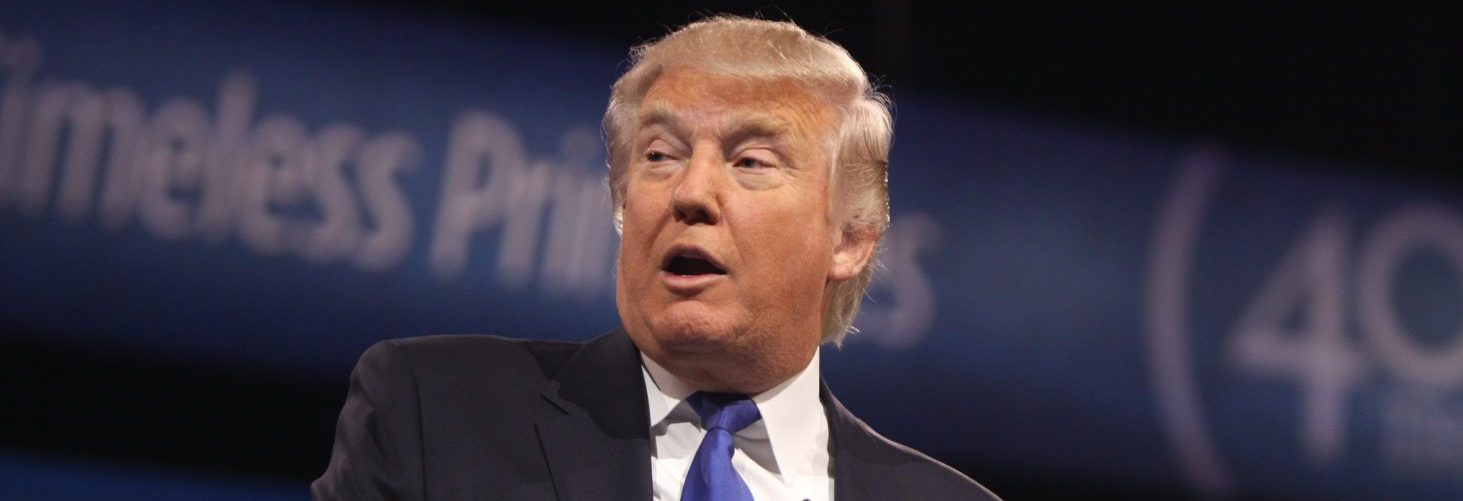By: Samuel Mattison
Alabama Political Reporter
President Donald Trump’s approval rating has dropped in Alabama since January by 2 percentage points, and his disapproval rating has increased by nearly 9 percentage points, according to a new study.
Morning Consultant, a political research agency, conducted the survey over a nine-month period from January and September. They interviewed over 470,000 people from 50 different states and the District of Columbia.
While Trump dropped in Alabama, the state still ranks third in states that the president is popular in with 59.1 percent of respondents saying they approved of Trump. Wyoming and West Virginia ranked first and second respectively with over 60 percent approval.
The study also showed that Trump is dropping in approval across the country, including states key to his 2016 victory over Democratic Candidate Hillary Clinton. He is even dropping among Republicans.
According to aggregated polls from RealClearPolitics, the president hasn’t enjoyed large approval rating since taking office.
In fact, the president only had one day where his approval was more than his disapproval. This was on Jan. 27, which was 7 days after he took office.
He has seen relative bumps in his approval ratings for the way he handled Hurricanes Harvey and Irma, which ravaged Texas and Florida.
His approval ratings dropped during his recent controversies involving the NFL and his handling of Hurricane Maria, which decimated Puerto Rico.
Since taking office in January, the president has failed to accomplish some of the key issues he ran on, including the Mexico-America border wall, repealing and replacing the Affordable Care Act, and tax reform.
The border wall is supposedly going to be built as a deal with Democratic leaders to protect the Dreamers.
Dreamers, who are the children of immigrants who entered the country illegally, were granted legal status under an Obama-era executive order. Trump rescinded the order in September.
On Twitter, the president said a deal has not yet been reached and he hasn’t brought up the deal since September.
A group of health care bills came to the Senate in August but failed due to U.S. Sen. John McCain’s, who Trump has attacked, no vote.
Trump took aim at Congress for their inabilities to send anything to his desk to sign.
The U.S. Senate, which failed to pass key health care bills, has been a target of the president as he continues to alienate key Republican senators.
The most recent was Sen. Bob Corker, R-Tenn., who announced his retirement from the Senate this week. Trump and Corker were engaged in a public spat that ended with Corker lamenting that the White House had become an “adult day care center.”
Other key Republicans include Senate Majority Leader Mitch McConnell, R-Ky., who went weeks without speaking to Trump after failing to pass a health care bill, according to The New York Times.
As the president makes a push for tax reform, he will need these senators and more to pass his agenda through Congress.
Trump’s reputation in the Alabama was challenged in September when his endorsed candidate, U.S. Sen. Luther Strange, R-Ala., lost to former state Supreme Court Chief Justice Roy Moore by a considerable margin.
The president’s endorsement didn’t sit well with many of Trump’s most diehard supporters in the state, including former state Rep. Ed Henry, R-Hartselle, who co-chaired Trump’s Alabama campaign.
Henry called the president’s visit to campaign for Strange in September “truly disappointing” on Twitter and encouraged him to “stay the heck out of Alabama.”
“It would be nice if you stayed out of our race,” Henry wrote to Trump on Twitter after the August primaries. “Most of us support you & your agenda we just don’t support Strange. Please.”
Later reporting by national news outlets showed Trump was not confident that Strange could win the primary. Trump had promised to “campaign like hell” for Moore if he won the nomination, but has not visited the state since his victory.





















































